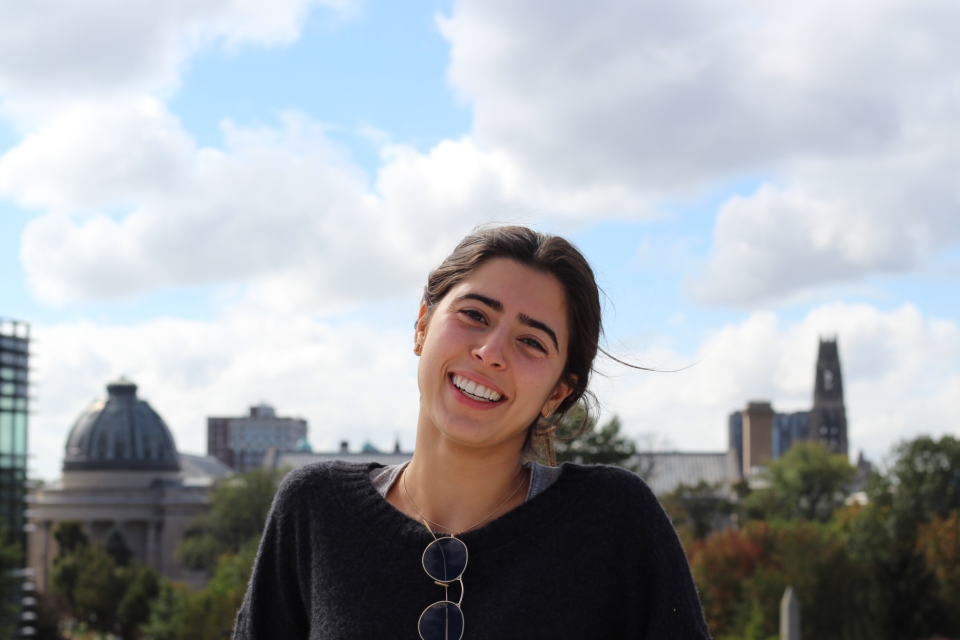Opinion: Fasting for Ramadan isn't the same as understanding poverty
I often hear American Muslims, explaining why they fast to people who don’t, say they do it to "feel with the poor." Individual intentions aside, this is a theologically inaccurate claim. The Quran presents fasting during Ramadan, for a consecutive month from sunrise to sunset, as a steady means to taqwa, God-consciousness.
That said, the inaccuracy of the claim is less compelling to me than what it betrays about how we understand suffering in America.
First, consider the language we use to talk about the "less fortunate." We talk about "the poor." Or “refugees.” And while our life experiences do shape the people we are, suffering is a far-too-narrow lens through which to frame a person.

Talking about social, political and economic conditions as what someone is rather than things someone is in or that happen to them, transmute what should be recognized as a person’s circumstances into something closer to a personality trait. From here, poverty or displacement becomes something we should "feel" with, try and understand, rather than an unacceptable condition no human should endure.
During Ramadan a few years ago, while working at a refugee agency, a coworker of mine decided to take the Ration Challenge, to see how it would feel to "eat like a refugee." Every day for that period she heated up carefully portioned, barely seasoned rice or lentils and brought these to her office desk, facing mine. Between bites, she offered updates that oscillated between defeated and grateful. One afternoon near the end of her challenge, she shared she was barely eating, as she’d run out of food. She wondered aloud how much harder this must be for whole families surviving on so little. I didn’t say much. One generation ago, my family had needed aid from the same agency now employing us. That afternoon, my coworker weighed her options: go hungry or go grocery shopping, hesitant to pick the latter because of how bad she’d feel if she were unable to complete the challenge.
A person can’t experience poverty by experiencing hunger. The conflation of these flattens suffering into something anyone can opt into. And while that offers a sort of pseudo-universality and makes it easier to conceptualize, it will always, always fail to capture what it feels like to be unable to opt out.
The issue isn’t that one doesn’t have groceries, or is living in a tent; it’s that they can’t afford groceries, and have nowhere else to go. In these instances, it turns out walking a mile in someone else’s shoes doesn’t get you closer to understanding anything about them or their lives, because poverty and forced displacement aren’t a pair of shoes, something that you slip on and off.
More often these suffering-solidarity gestures indicate not a barrier to action but a perceived powerlessness. If human nature is good, which I wholly believe, people want to help each other. Because we live in a world that seems to stall openings for meaningful collective action, these openings shrink and shrink, and an impossible responsibility falls on individuals. Under this weight it often feels like there’s little else to do in response to immense, collective harms, except tweet and sign online petitions and post stories to Instagram. It’s a fundamentally hopeless signal: Unable to do anything about these broader structural issues, at least I can perform an acknowledgement that this situation is bad. And, a food challenge engages the senses; the effects feel more bodied, more tangible, than a social media post, even if they stop at my person.
We can’t work towards eliminating what we don’t understand. What is most harmful about essentializing human suffering — making it intrinsic to those experiencing it — is it obscures causality. "Poverty is an economic and social issue," I read on the "Feeding America" website. Nearly 38 million Americans lived in poverty in 2021, "the most common cause of food insecurity [being] a lower income." This framing is exactly the problem. Both poverty and food insecurity are downstream effects of a political system that mis-prioritizes resources and attention. Poverty is a political issue, and it is a choice — not made by the people who live on less than $X a day, but by a system that scoffs at social safety nets, and jumps into the wars of choice that destabilize economies and creates refugees.
This isn’t to say treating the symptoms doesn’t matter. This is often a place to start, and through which we can act in ways that immerse us in our community, and forge meaning through connection. There have been attempts in this country to address suffering at its downstream effects while also bearing in mind what’s upstream. This requires understanding — motivated by a hope in people and by a grounded self-worth — both that harm is not inevitable or natural, and that we have to resist systems that try to tell us suffering is inherent, intractable or a simple matter of individual choice. And that we are destined to be implicated in harm.
In Islam, a person is only supposed to fast if they are able, because as one Quran verse explains, "God intends for you [through fasting] ease and not hardship." Struggle has to be oriented appropriately for it to be meaningful and beneficial. I imagine a just God wants a world without forced displacement, without poverty — and would like to see people commit themselves to building that world.
I imagine it matters little whether our stomachs are empty, unless this gets us faster to a place where more of us can choose how full to feel.
Mary Turfah is a medical student at University of Michigan Medical School, where she is currently the Social Justice and Medical Education fellow. She holds a master's degree in Middle Eastern South Asian and African Studies from Columbia University.
This article originally appeared on Detroit Free Press: Opinion: Fasting during Ramadan doesn't help us understand poverty

